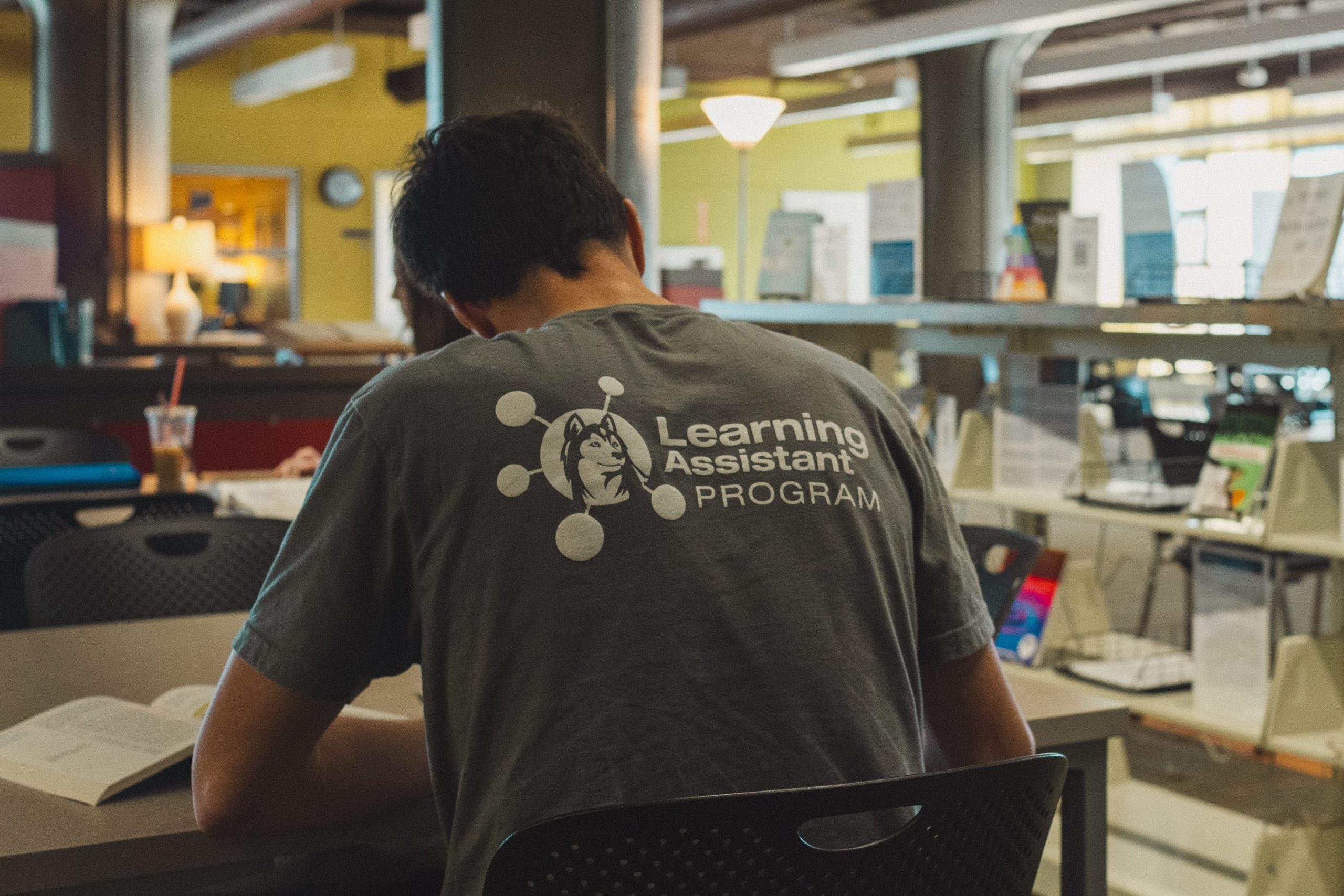
The Learning Assistant role is distinct from a Teaching Assistant. LAs do not grade assignments, proctor exams, or teach alone in the classroom. LAs serve as helpful, knowledgeable peers, partnering with the faculty to offer engaging small-group activities in the classroom. As previous students in the course, LAs can offer current students guidance on how to be successful in the course, as well as provide perspective to the faculty about challenges that students face in the course.
At USM, the LA role is a paid student employment position. While students with Federal Work Study funds available as part of their financial aid package are welcome to use those funds for this campus job, department funds also are available to hire students to serve as LAs. LAs work approximately 7-10 hours per week to engage in three main activities:
- Interacting with groups of students: Learning Assistants interact with students by facilitating small-group activities during class time. LAs focus mainly on eliciting student thinking and helping each student participate in developing a shared understanding.
- Participating in weekly prep meetings: LAs meet with their faculty as a team at least once per week to prepare for future classes, develop deeper content understanding, and exchange information about how students are progressing in the course.
- Completing the LA training program: The training program introduces LAs to active learning and strategies that support: (1) eliciting student ideas and helping all group members become active and engaged in the class; (2) listening and questioning; (3) building relationships; and (4) integrating learning theories with effective practices.
Many LAs supplement the in-class group work by providing other forms of academic support to the students in the course, decided upon together with the faculty. Examples include individual and group tutoring and consultation, preview and review sessions, exam preparation sessions, and the development of course resources. The overall experience provides LAs with opportunities to strengthen content knowledge, establish professional relationships with the faculty, and develop several transferable skills for future employment and graduate school pathways.

